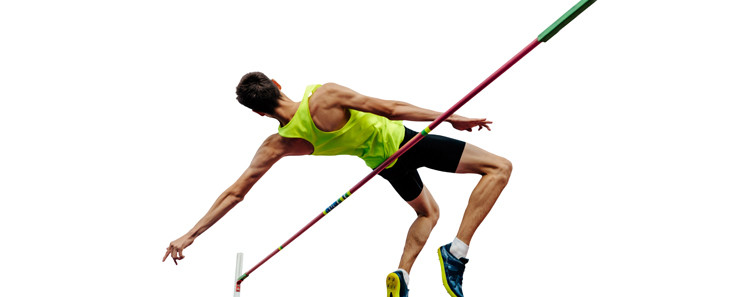Re-living kindness and wisdom from the Tokyo Olympics 2020
High jumpers, Gianmarco Tamberi from Italy and Mutaz Barshim of Qatar, were tied for the top spot (clearing 2.37 meters or 7.78 feet) when they tried to clear the Olympic record-setting mark of 2.39 meters or 7.78 feet; both the athletes missed after three chances each. Instead of going for a tie breaker, both the players mutually decided to do something far more graceful than their physical ages would grant them the wisdom for.

“Can we have two gold medals?”
Mutaz Barshim asked the Olympic official, persuading him to have them share the gold.
“This is beyond sport. This is the message we deliver to the younger generation. I know for a fact that for the performance I did, I deserve that gold. He did the same thing, so I know he deserved that gold,” Barshim seems to have said. Seconds later, Barshim jumped to hug his fiercest competitor in the Olympics. A moment that perhaps had the best of us holding back a tear or two.
“There is no such thing as losing. You either win or make others win,” Gurudev Sri Sri Ravi Shankar says.
In another incident, Japan’s Kanoa Igarashi was feeling gutted for losing out on the much anticipated gold medal in surfing. He had grown up surfing on these very beaches. It wasn’t easy that racist slurs were being hurled at him by Brazilian trolls online. But Igarashi did one of the simplest and kindest things instead. He jumped into what was turning into a bit of a visual chaos and helped translate a question into Portuguese for Brazilian gold medalist Italo Ferreira to answer. Igarashi had lost his gold medal to Ferreira a few minutes earlier.
Many firsts at the Olympics…
Unless you have been living under the Paleolithic rock, you’ll know this Olympics has been different, perhaps the most inclusive and humane of all. The first time that openly trans and non-binary athletes were allowed to participate (it was high time!); the first time a young talent with potential to win several gold medals for her country chose to sit the big ones out, prioritizing her mental health; players chose to share gold medals; players helped each other up to their feet to the finish line after tripping on a tangle; and players consoled and pepped each other up beyond national and competitive lines.
Winning at all costs? Sorry, sir.
I couldn’t help but wonder, if the collective consciousness is finally recognizing its oneness? Are we finally allowing space for vulnerability to breathe alongside extreme pressure situations that the Olympics presents for the world’s best athletes, instead of putting up a smokescreen of superhuman invincibility? Young athletes like Simone Biles are leading the way in showing this courage and recognition that the human mind goes through its vagaries and it is all right to seek help. It is all right to sit out the big competitions, if that is what you need for your mental health.
“You are bigger than your success”
When I first heard this wisdom in one of Gurudev’s talks many years back, it blew my mind. I sat there awestruck at how certainly inadequate my understanding of success was. “If you become happy with your success, then know you have limited yourself by making the success bigger than you. But the truth is that you are limitless.” And many years later, Simone’s words reflected her newfound awareness of this, “…I’m more than my accomplishments and gymnastics, which I never truly believed before.”
War and sports - asking the tough questions of us the very first time
“Wars have become a sport and sports has become like a war,” Gurudev quips. Granted that athletes prepare for many years to win at the Olympics and there is huge national pride attached to these games. Especially for a country like India, winning a medal can open up many doors for athletes to lead better socio-economic lives too. So, the pressure cannot be wished away.
But the truth is that sports is an expression of joy, a celebration of athleticism and if unrealistic pressure and competitiveness is taking the juice out of it, then is it really worth it even if one wins a lot of medals? Is the victory worth anything if the player or athlete is bereft of joy within and his/her mind is not healthy and happy?
It is such a relief that athletes like Biles have started this difficult conversation despite what her distractors may say.
Dealing with pressure
On the solution side of things, many governments and associations have started to train their players in important breathwork exercises and meditation practices to provide tangible and powerful tools to help them handle the high intensity stress and manage their mind and emotions. These things may seem insignificant for people who want to exclusively focus on tactics and strategy but the truth is, when games come down to the wire and players are of nearly equal caliber, how well players handle their emotions and mind in that moment, and how aware they are of the present moment, can make or break the games.
A note on happiness
An observation that I found rather funny at the Olympics was: players from some countries were so happy with their bronze medals. Sometimes, they would lose a medal by a whisker and yet would be seen celebrating their career’s best performances perhaps, while those with silver would be found sulking because they were going for a gold. Brings me to the last question that I want to leave you with, my dear reader:
Is happiness then a state of mind and an art of managing expectations?

Written by: Ruchira Roy
Former business journalist with The Economic Times, wellness writer and NYU graduate with a funny bone.
A little note: As community conversation facilitators, we believe in giving an individual the autonomy of expression. The views expressed in this piece are the author's own.

























